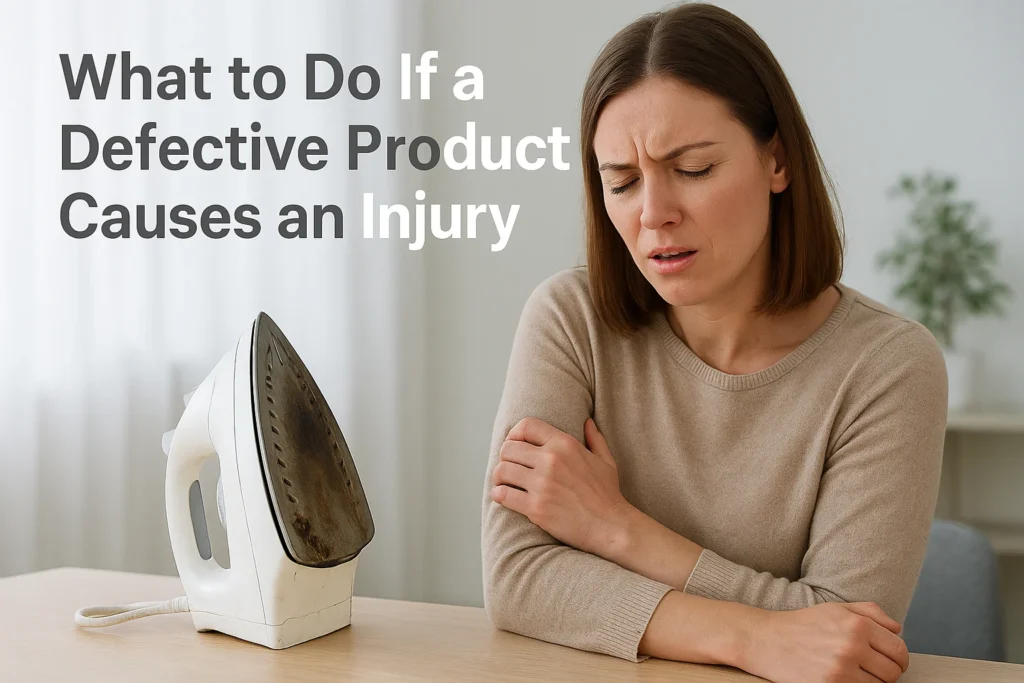A defective product injury happens when something you buy—something you trust—malfunctions in a way that hurts you. It could be a phone battery that explodes, a ladder that collapses, or even a child’s toy with parts that break off too easily. These aren’t just accidents; they’re failures in design, manufacturing, or safety warnings. And when they happen, the law gives you the right to seek compensation.
Baton Rouge is the capital of Louisiana, located on the eastern bank of the Mississippi River in southeastern Louisiana. Known for its rich history and strategic river location, Baton Rouge is an important cultural and economic center with industries like petrochemicals and shipping.
In Baton Rouge, Louisiana, the Louisiana Products Liability Act (LPLA) holds manufacturers and sellers responsible for injuries caused by defective or dangerous products, such as design flaws, manufacturing defects, or failure to warn. These laws can get technical, which is why having a defective products lawyer in Baton Rouge can make all the difference.
Read on to learn what steps to take after an injury caused by a defective product and how to protect your right to fair compensation.
Steps to Take After Being Injured by a Defective Product
When a product fails and hurts you, your first move matters. A broken appliance, unsafe medication, or faulty car part can do real damage—figuring out who’s responsible takes more than a receipt. Here’s what to do step by step.
1. Get Medical Help First
Your health comes first. Even if your injuries seem small, go to a doctor or emergency room. Some harm, like internal injuries or chemical burns, doesn’t show up right away. Having a medical record also helps link your injury to the product later.
Keep copies of everything: doctor’s notes, prescriptions, and hospital bills. These documents become proof of your losses.
Don’t stop now! Related posts designed to keep your ideas flowing effortlessly.
2. Save the Product and Packaging
Don’t throw anything away. Keep the defective product, packaging, instruction manuals, and even the receipt. These items help show what went wrong and whether the product had a design, manufacturing, or labeling defect.
Under the Louisiana Products Liability Act (La. R.S. §9:2800.51 et seq.), you must show that the product was “unreasonably dangerous” and that this defect caused your injury. Having the physical product lets experts test and prove that connection.
If the product is large (like a car part or appliance), take photos or videos showing the damage before anyone repairs it.
3. Document Everything
Write down what happened while you still remember it. Add:
- The time and date of the crash
- Where it took place
- How you used the product
- Who was there or saw it happen
- Any sounds, odors, or cautions that happened before it broke
Small details matter. A note like “the cord sparked before the fire started” can help a defective products lawyer pinpoint whether the problem was electrical or structural.
4. Avoid Talking to the Manufacturer Alone
Manufacturers and insurance adjusters often reach out quickly. They may ask for your version of events or offer a refund or settlement. Don’t agree to anything yet. Their goal is to protect their company, not your recovery.
Let your lawyer handle all communication. They’ll know how to respond without weakening your case.
5. Know the Types of Product Defects
There are four main ways a product can be defective under Louisiana law:
- Design defect—the product was dangerous from the start.
- Manufacturing defect – something went wrong while it was made.
- Failure to warn—missing or unclear safety instructions.
- Breach of warranty—the product didn’t meet its promised safety or quality.
Each type requires different proof, but they all fall under the LPLA’s standard that the product must be “unreasonably dangerous” when it leaves the manufacturer’s control.
6. File Your Claim in Time
Louisiana gives you one year from the date of injury to file a product liability claim (La. Civ. Code Art. 3492). Waiting longer can bar your right to recover anything. That’s one reason people often contact a lawyer early—they help track deadlines and preserve evidence.
7. Build a Strong Case
Your lawyer will get expert views, test reports, and records of the product. They might hire engineers or safety experts to explain the problem. You can also aid by giving medical updates and details of lost wages or other costs.
The more proof you have, the better your chances of getting reasonable compensation for medical expenditures, lost wages, and agony caused by the faulty goods.
Quick Recap
Here’s a summary of what to do if a defective product causes injury:
- Get medical help right away and keep your treatment records.
- Save the product, packaging, and receipts. They’re key evidence.
- Document everything about the incident, including photos and notes.
- Don’t talk directly to the manufacturer or insurer without legal help.
- Know the four types of product defects under Louisiana law.
- File your claim within one year to stay within Louisiana’s legal deadline.
- Work with experts who can prove the defect and its impact on your life.
There’s always more! Explore additional posts that take your knowledge further.






